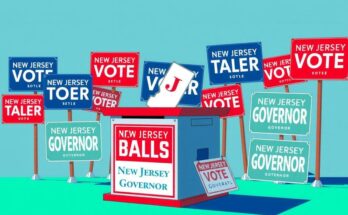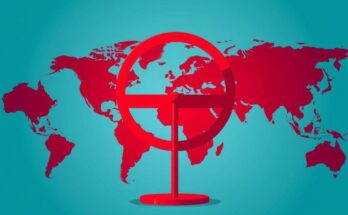U.S. Secretary of State Marco Rubio condemned the regimes in Cuba, Nicaragua, and Venezuela as key contributors to a regional migration crisis. He emphasized their systemic failures and criticized Nicaragua’s autocratic governance. In response, Cuban President Diaz-Canel attributed migration to the U.S. trade embargo. Rubio’s Latin American visit seeks to address migration issues while reaffirming U.S. positions on governance in the region.
In a recent statement during his visit to Latin America, United States Secretary of State Marco Rubio criticized the authoritarian regimes in Cuba, Nicaragua, and Venezuela for triggering a migration crisis in the region. He emphasized that these governments are fundamentally dysfunctional, leading to widespread discontent and migration. “If it were not for these three regimes, there would not be a migration crisis in the hemisphere,” Rubio asserted in Costa Rica, where he presented his arguments in Spanish, reflecting his personal background as the descendant of Cuban migrants.
Rubio’s remarks were particularly directed at Nicaragua, where he condemned the rising authoritarianism under President Daniel Ortega and his wife Rosario Murillo. He characterized Nicaragua’s government as a family dynasty that seeks to suppress any opposition, including the Catholic Church. Rubio noted, “We have seen thousands of Nicaraguans fleeing that system for the same reason people are leaving Cuba or Venezuela,” underscoring the systemic failures that compel people to migrate.
In response to Rubio’s assertions, Cuban President Miguel Diaz-Canel took to social media, denouncing Rubio as an example of U.S. politicians’ “shamelessness.” He attributed the migration crisis from Cuba to the long-standing U.S. trade embargo, stating, “It is proven that the migration exodus in Cuba is proportional to the tightening of the blockade, which deprives our people of essential goods.” He further accused Rubio of promoting a form of neofascism that threatens the well-being of humanity.
The Secretary of State continued his diplomatic mission by moving from Costa Rica to Guatemala, following stops in Panama and El Salvador. Notably, in a surprising development, El Salvador’s President Nayib Bukele proposed jailing U.S. citizen convicts in a newly built mega-prison designed for gang members. Rubio expressed gratitude for Bukele’s willingness to accept deported gang members from other Latin American nations, signifying a controversial but pragmatic approach to regional migration issues.
The migration crisis in Latin America has intensified over recent years, driven by economic collapse, political repression, and violence prevalent in countries like Cuba, Venezuela, and Nicaragua. These conditions have fueled mass migrations as citizens seek stability and safety elsewhere, particularly in the United States. Political leaders in the U.S. and those in the affected regions engage in a complex dialogue about the impact of governance and external pressures like trade sanctions on migration rates. Rubio’s visit aims to address these dynamics and propose potential solutions to curb the migration flow into the United States, underscoring the intersections of foreign policy and humanitarian issues.
In conclusion, Secretary of State Marco Rubio’s unequivocal criticism of Cuba, Nicaragua, and Venezuela highlights the complexities of regional migration, attributing it primarily to the failures of their governments. His assertions reflect broader themes in U.S. foreign policy regarding authoritarianism in Latin America. These criticisms sparked significant responses, particularly from Cuban leadership, illustrating the ongoing tensions in the region regarding governance, human rights, and migration.
Original Source: www.rfi.fr




